Home
The Jena Experiment is a DFG-funded Research Unit (FOR 5000) that builds on a long history of biodiversity-ecosystem functioning (BEF) research (FOR 456; FOR 1451). Despite broad consensus of the positive BEF relationship, the underlying ecological and evolutionary mechanisms have not been well understood. The Jena Experiment aims at filling this gap of knowledge by applying novel experimental and analytical approaches in one of the longest-running biodiversity experiments in the world (running since 2002). The central aim of the Research Unit is to uncover the mechanisms that determine BEF relationships in the short- and in the long-term.
News
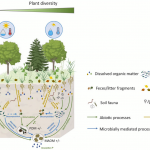 New publication from Angst et al. in Nature Communications: Un(der)explored links between plant diversity and particulate and mineralassociated organic matter in soil July 8, 2025 7:37am - Plant diversity can alter soil carbon stocks, but the effects are difficult to predict due…
New publication from Angst et al. in Nature Communications: Un(der)explored links between plant diversity and particulate and mineralassociated organic matter in soil July 8, 2025 7:37am - Plant diversity can alter soil carbon stocks, but the effects are difficult to predict due… 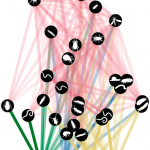 New publication from Amyntas et al. in Journal of Animal Ecology: Shared community history strengthens plant diversity effects on below-ground multitrophic functioning March 23, 2025 2:15pm - The relationship of plant diversity and several ecosystem functions strengthens over time. This suggests that…
New publication from Amyntas et al. in Journal of Animal Ecology: Shared community history strengthens plant diversity effects on below-ground multitrophic functioning March 23, 2025 2:15pm - The relationship of plant diversity and several ecosystem functions strengthens over time. This suggests that… 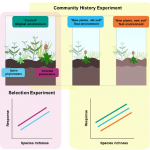 New publication from De Giorgi et al. in Ecology and Evolution: Selection and Phenotypic Plasticity Shape Plant Performance in a Grassland Biodiversity Experiment March 19, 2025 12:53pm - The increasing strength of positive biodiversity effects on plant community productivity, observed in long-term biodiversity…
New publication from De Giorgi et al. in Ecology and Evolution: Selection and Phenotypic Plasticity Shape Plant Performance in a Grassland Biodiversity Experiment March 19, 2025 12:53pm - The increasing strength of positive biodiversity effects on plant community productivity, observed in long-term biodiversity… 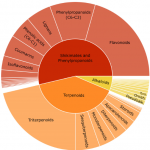 New Publication from Bassi et al. in New Phytologist: Plant species richness promotes the decoupling of leaf and root defence traits while species-specific responses in physical and chemical defences are rare March 3, 2025 3:57pm - The increased positive impact of plant diversity on ecosystem functioning is often attributed to the…
New Publication from Bassi et al. in New Phytologist: Plant species richness promotes the decoupling of leaf and root defence traits while species-specific responses in physical and chemical defences are rare March 3, 2025 3:57pm - The increased positive impact of plant diversity on ecosystem functioning is often attributed to the… 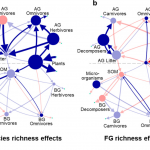 New Publication from Buzhdygan et al. in Ecological Monographs: Plant diversity facets differentially affect energy dynamics in grasslands depending on trophic contexts March 3, 2025 3:53pm - The strength of biodiversity–ecosystem functioning (BEF) relationships varies within and across studies, depending on the…
New Publication from Buzhdygan et al. in Ecological Monographs: Plant diversity facets differentially affect energy dynamics in grasslands depending on trophic contexts March 3, 2025 3:53pm - The strength of biodiversity–ecosystem functioning (BEF) relationships varies within and across studies, depending on the… 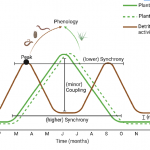 New Publication from Bonato Asato et al. in Journal of Ecology: Seasonal shifts in plant diversity effects on above-ground–below-ground phenological synchrony January 6, 2025 12:22pm - The significance of biological diversity as a mechanism that optimizes niche breadth for resource acquisition…
New Publication from Bonato Asato et al. in Journal of Ecology: Seasonal shifts in plant diversity effects on above-ground–below-ground phenological synchrony January 6, 2025 12:22pm - The significance of biological diversity as a mechanism that optimizes niche breadth for resource acquisition…
–> More news



